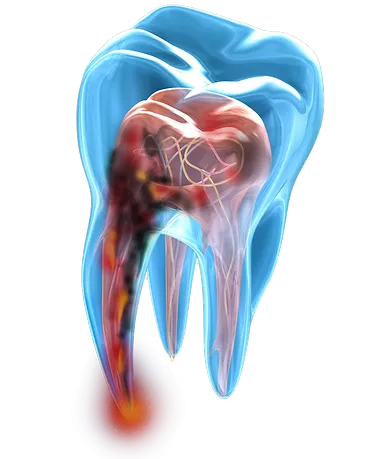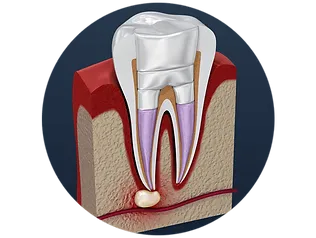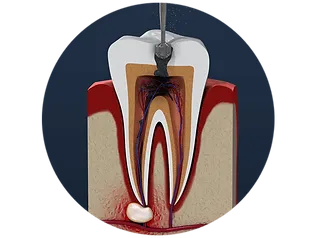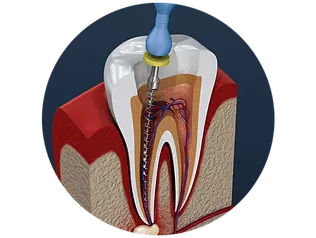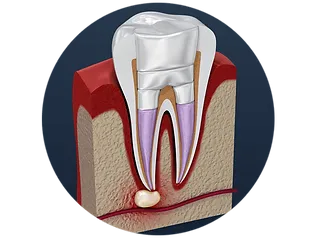Root Canal Aftercare
Proper aftercare ensures a smooth recovery and helps protect your treated tooth for years to come:
- Expect Mild Discomfort: Some sensitivity or soreness is normal for a few days and can be managed with over-the-counter pain relievers.
- Avoid Chewing on the Treated Side: Until your permanent crown is placed, avoid chewing on the treated tooth to prevent damage.
- Maintain Excellent Oral Hygiene: Brush twice daily, floss carefully around the treated area, and use an antimicrobial mouthwash if recommended by your dentist.
- Attend All Follow-Up Appointments: These visits allow us to monitor healing and place your permanent restoration.
- Watch for Unusual Symptoms: Contact our office immediately if you notice swelling, severe pain, or signs of reinfection.
With proper care, your root canal-treated tooth can last a lifetime, preserving both your natural smile and your oral health.
Types of Endodontic Treatments
There are several types of endodontic treatment, and the type you receive will depend on your specific dental needs. Common endodontic treatments include:
Root Canal Therapy
A root canal treatment involves removing the infected or damaged pulp and cleaning and filling the root canal. Once the root canal is filled, the tooth is restored with a filling or crown.
Non-Surgical Root Canal Treatment
Non-surgical root canal treatment is the most common form of root canal therapy. It involves removing the infected or inflamed pulp from inside the tooth, cleaning and shaping the root canals, and sealing them to prevent reinfection. A restoration, such as a crown, is typically placed afterward for protection.
Apicoectomy
In some cases, root canal therapy may not be enough to treat the infection or damage to the tooth. In these cases, an apicoectomy may be necessary. This involves removing the root’s tip and any infected tissue and sealing the root to prevent further infection.
Pulp Capping
If the damage to the tooth is minor and hasn’t caused an infection, your dentist may recommend a pulp capping procedure. This involves placing special material over the damaged pulp to help it heal and prevent further damage.
Pulpotomy
A pulpotomy is often performed on children with baby teeth or in some adult cases where the infection or decay is limited to the pulp chamber. It involves removing the affected pulp tissue from the crown portion of the tooth while leaving the healthy pulp in the roots intact, followed by sealing the tooth to protect it.
Regenerative Endodontics
Regenerative endodontics is a newer type of root canal therapy that helps the damaged pulp in young teeth heal and regenerate. This involves using special materials to stimulate the growth of new pulp tissue and blood vessels in the tooth.
Root Canal Retreatment
In some cases, a tooth that has undergone root canal therapy may become infected again. In these cases, root canal retreatment may be necessary to remove the infection and restore the tooth.

